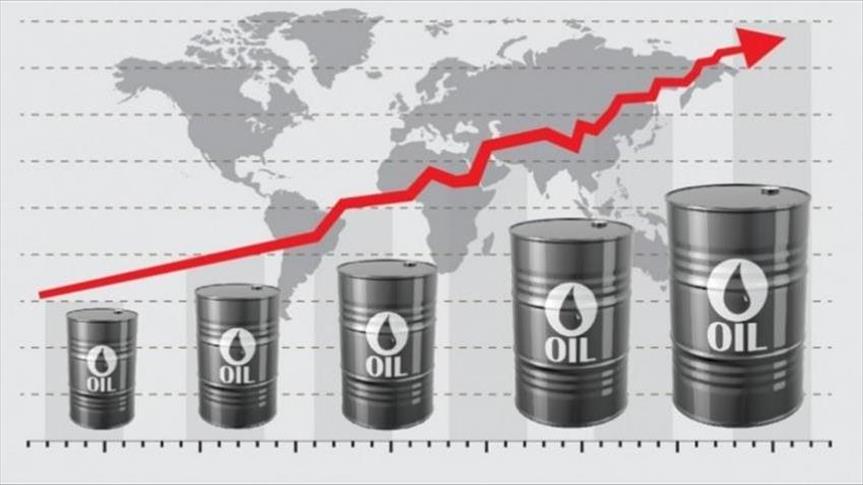Oil prices rose on Monday, boosted by the start of Saudi Arabia’s production cut of 1 million barrels per day (bpd) and with positive reports on the new coronavirus vaccines.
International benchmark Brent crude was trading at $55.38 per barrel at 0654 GMT for a 0.65% rise after closing the previous session at $55.02 a barrel.
American benchmark West Texas Intermediate (WTI) was at $52.41 per barrel at the same time for a 0.40% increase after ending the previous session at $52.20 a barrel.
Along with Saudi Arabia’s voluntary production, the positive reports on new vaccines also supported oil prices.
Saudi Arabia, the de-facto leader of the Organization of Petroleum Exporting Countries (OPEC) and the driver of OPEC+ production cuts, started voluntarily reducing its production in February and March by 1 million bpd.
As a result of Saudi Arabia's voluntary reduction, the production cut of OPEC+ will now reach 8.125 million bpd in February and 8.05 million bpd in March, meaning the group will reduce its output in February by 925,000 bpd and 850,000 bpd in March relative to output rates in January.
The recent Johnson & Johnson and Novavax vaccinations have contributed to the bullish mood in oil markets to boost expectations of a return to normal.
Limiting further rise of oil prices, the number of US oil rigs increased by six to 295 last week compared to the previous week, signaling greater short-term output and raising supply glut concerns.
“Benchmark prices of WTI and Brent ended January steady between the ranges of $50-55, and are still reflecting the protracted lockdowns due to the second wave of virus and slow oil demand as travel restrictions are ongoing in most parts of Europe,” Political Risk and Oil Analyst Jose Chalhoub told Anadolu Agency.
Chalhoub said it is likely that these current low price levels will persist in the first semester of 2021 unless some significant output disruption like a black swan event occurs.
By Sibel Morrow
Anadolu Agency
energy@aa.com.tr


